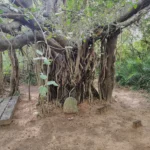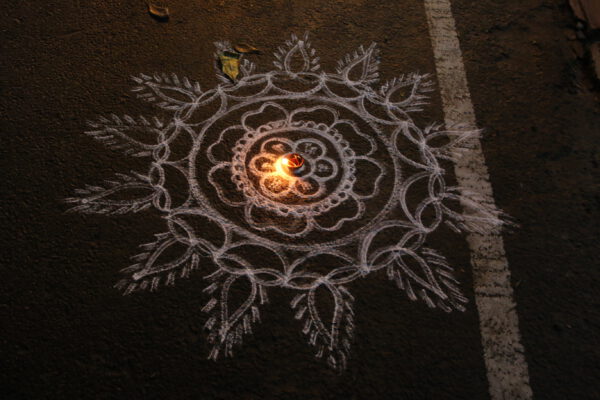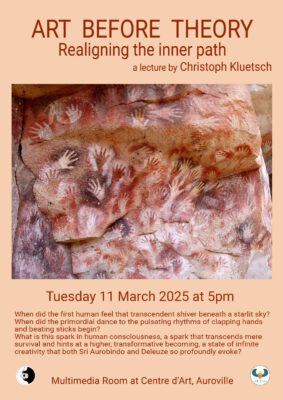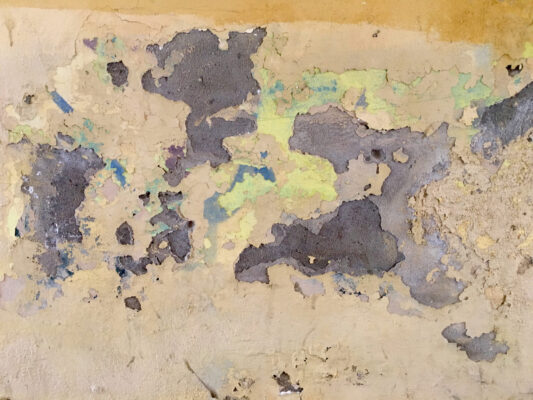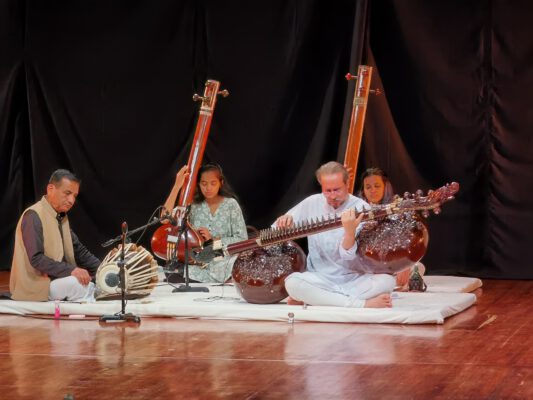First encounters with ragas
Ahen I was a teenager, I listened to ragas for hours. I didn't know anything about them. I looked them up a little: Microtonality, meditation, tone sequence. That was all I understood. But it was the most profound musical experience - a meditation on music. To this day, ragas lead me into my inner self or into deep states of insight, but they are not rational. Rather, it is a way of being in the world.
Music as a shared space and pure energy
Listening to music draws us all into the realms of emotional landscapes, daydreaming, aesthetic experience. It is emotional, abstract, temporal; it allows the other senses to fade in or out, to recall memories or forget something. We can dream up a future, yearn or express emotions - let them out.
When we make music together, practise, dance, listen together or even just recommend music, we enter a shared space. This space is a different dimension. It has no material reference as the other senses have (e.g. in the performing arts or in cooking). Music corresponds to the ether, to space itself. Vibration requires a physical carrier, but is itself pure energy.
Music, consciousness and the fourth reality
When my senses mix - smell, touch, sound, taste and sight - the messengers of my nervous system unite somewhere inside me, perhaps in my head or my heart, and form a basis for consciousness there. This ocean of consciousness, which is fed by the senses, can access a reality through them: This is what we call the waking state.
In the dream state, we access another reality, a reality made up of memories, feelings and fantasies. Or we go into deep sleep, where the senses do not reach consciousness. However, since I continue to exist, as I experience every morning, my self was apparently somewhere else entirely. It was probably where the material world as we understand it is irrelevant. We were in the dark ocean of pure existence.
In the Māṇḍūkya Upanishad, however, a fourth state is mentioned - the state that can perhaps be described as "enlightened". In this state, we are awake but not bound to our senses. We do not perceive, but we also do not dream, we do not sleep and yet we grasp a higher reality. We know about the world in a deeper sense. I see my inner self and the world as such, I understand that my everyday consciousness is functional but limited. I become aware of my ignorance. I know that I know nothing. I am one with the world, even though I seem to be outside of it. One could speculate here about the ideas of the transcendental, advaita or immanence. But I prefer not to do that, as it gets lost in intellectual gimmicks.
Music, and for me personally ragas, have something of this fourth reality. I expressly do not want to say here that listening to music is like an enlightened state, and yet I am suggesting this parallel. I am not asleep and I am not aware, I am not dreaming and I am wide awake. I feel myself in a world that is often more intense than reality. Sometimes I escape into it. But when I listen with great concentration, when I become one with the music, then something shines within me - with a purity and clarity that I otherwise only know from meditation.
In music, we identify with something. Music is a carrier of something that I can become. In meditation, I can also become something; if it goes well, I become one.
